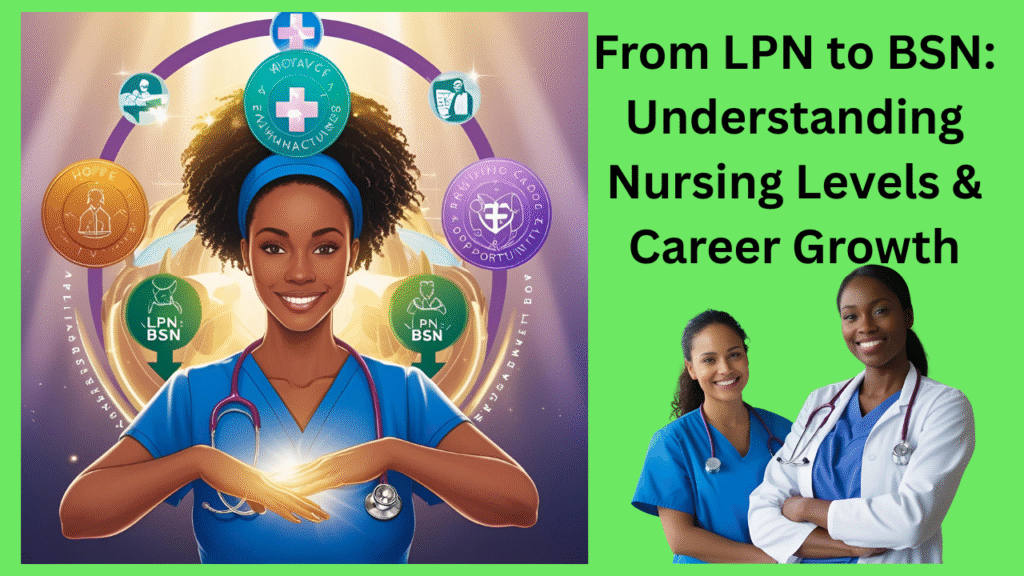BSc Nursing: Your Gateway to a Successful Career in Healthcare
Introduction: The Significance of BSc Nursing in Contemporary Society
In the contemporary and dynamic healthcare environment, a BSc in Nursing provides a robust foundation for a profession that is both stable and in high demand, as well as profoundly fulfilling. As medical technology advances, the demand for proficient nursing practitioners possessing critical thinking, compassion, and evidence-based competencies becomes essential. This article examines the rationale for getting a Bachelor of Science in Nursing (BSc Nursing) as a prudent career decision in contemporary healthcare.

Comprehending the BSc Nursing Program: Duration, Curriculum, and Eligibility
The Bachelor of Science in Nursing degree is often a four-year undergraduate study. Eligibility requires the completion of 10+2 in the science stream (biology, chemistry, physics) and successful performance on entrance examinations in most areas.
Essential Disciplines and Clinical Instruction
A comprehensive BSc Nursing curriculum encompasses:
Human Anatomy and Physiology
Nutrition and Biochemistry
Psychology
Medical-Surgical Nursing
Pediatric and Mental Health Nursing
Midwifery and Obstetric Nursing
Research and Statistics in Nursing
Community Health Nursing
Students must complete comprehensive practical clinical training in hospitals, primary health centers, and community health environments.
Ten Reasons Why a BSc in Nursing Facilitates a Successful Career.
1. Robust Demand and International Employment Prospects
The World Health Organization (WHO) anticipates a worldwide deficit of millions of nurses by 2030. BSc Nursing graduates will maintain robust employment security, both domestically and globally.
2. Diverse Career Trajectories in Healthcare
A BSc in Nursing does not confine you to bedside treatment. Potential roles include nursing educator, healthcare administrator, and clinical research nurse. Clinical Educator Nurse specializing in public health
3. High Earning Potential and Job Stability
Government hospitals, private institutions, military services, and international healthcare organizations offer competitive salaries and permanent positions to qualified BSc nurses.
| Experience | Average Monthly Salary (India) |
|---|---|
| Freshers (0–1 year) | ₹25,000–₹35,000 |
| 2–5 years | ₹40,000–₹55,000 |
| 6+ years / Supervisory Role | ₹60,000–₹90,000+ |
In countries like Canada, the US, the UK, and the UAE, salaries are significantly higher.
4. Leadership and Specialization Opportunities
The Bachelor of Science in Nursing provides the foundational education for specialized fields.
including Intensive Care Unit Nursing Oncological Nursing Operating Room Nursing Emergency and Trauma Nursing Neonatal Intensive Care Unit These specialist positions provide more remuneration, independence, and status.
5. Individual Satisfaction and Societal Influence
Nursing transcends just employment; it is a vocation. BSc nurses enhance lives daily by providing respect, comfort, and healing to patients. The feeling of social contribution and fulfillment is unparalleled.
6. Foundation for Higher Education and Research A Bachelor of Science in Nursing serves as a precursor to postgraduate study.
including Master of Science in Nursing Master of Hospital Administration (MHA) Master of Public Health (MPH) Doctor of Philosophy in Nursing This facilitates opportunities in academic, administrative, and research-focused professions.
7. Versatility Across Healthcare Environments
Nurses can operate in a variety of environments, ranging from urban hospitals and rural clinics to telemedicine centers and disaster relief missions.
8. Esteem and Acknowledgment among the Medical Community
Bachelor of Science nurses are frequently acknowledged as leaders in interdisciplinary teams. Their education equips them to collaborate with physicians, therapists, and policymakers.
9. Transferable Competencies Across Nations
A Bachelor of Science in Nursing degree is internationally acknowledged, particularly if it adheres to the requirements set by INC (India), NMC (UK), or NCLEX (USA). Nurses possessing this qualification frequently migrate successfully for employment or advanced education.
10. Advantages for Government and Private Sector
Bachelor of Science Nurses working in public health services receive employment stability. Provident Fund, pension, and gratuity Maternity entitlements Advancements predicated on tenure Residential and travel stipends Nurses in the private sector benefit from advantages such as flexible schedules, bonuses, and international assignments. Career Pathways Following BSc Nursing Clinical Positions Registered Nurse (RN), Intensive Care Nurse, Pediatric Nurse, Operating Room Assistant, and Administrative and Leadership Positions Ward Supervisor, Nursing Superintendent, Director of Nursing, and Academic and Research Professions: Lecturer or Professor Researcher in Nursing Curriculum Designer

BSc Nursing vs. GNM: Which Is Better for Career Growth?
| Feature | BSc Nursing | GNM |
|---|---|---|
| Duration | 4 years | 3 years |
| Eligibility | 10+2 Science | 10+2 Any Stream |
| Career Scope | Higher (Specializations, Abroad) | Moderate |
| Salary Range | Higher | Limited |
| Growth Opportunities | Greater | Fewer |
BSc Nursing is ideal for those seeking long-term growth, academic advancement, and international migration.
What Constitutes a Successful BSc Nurse? Essential Attributes and Competencies
Analytical reasoning and clinical discernment Compassion and empathy Collaboration and interpersonal communication Flexibility in high-stress situations Dedication to perpetual education Compensation Projections for Bachelor of Science in Nursing Graduates
As the healthcare sector expands,
BSc nurses can anticipate: Initial remuneration: ₹3–4.5 LPA in India Median salary: ₹5–7 LPA International opportunities: ₹20–35 LPA equivalents Determinants of compensation encompass experience, geographic location, institution, and area of specialization.
Opportunities for BSc Nursing Internationally
Countries with a high demand for nurses: The USA mandates NCLEX and CGFNS certification. Canada mandates the CRNE examination and IELTS. United Kingdom: NMC registration, Computer-Based Test, Objective Structured Clinical Examination Australia and New Zealand: AHPRA Registration These countries provide permanent residency opportunities for eligible BSc nurses.
FAQs
1. Is a BSc in Nursing superior to a GNM for professional advancement?
BSc Nursing provides superior career progression, increased remuneration, and eligibility for foreign employment.
Is it straightforward for BSc nurses to work internationally?
Indeed, particularly about mandatory licensing examinations such as NCLEX, CRNE, or NMC registration.
What are the areas of specialization available after obtaining a BSc in Nursing?
Specializations are available in cardiac, oncology, intensive care unit (ICU), pediatrics, psychiatric, and emergency nursing. Is NEET mandatory for BSc Nursing?
In several states, NEET is not mandatory; however, specific entrance examinations or merit-based admissions are prevalent.
Is it possible to pursue an MBA or MPH following a BSc in Nursing?
Indeed. BSc graduates frequently transition into hospital administration, public health, and healthcare management roles.
What is the job environment for Bachelor of Science in Nursing (BSc Nurses)?
Hospitals, clinics, NGOs, military organizations, educational institutions, and research facilities provide dynamic and significant opportunities.
Conclusion: Pursue a BSc in Nursing for a Fulfilling Career in Healthcare
Selecting a BSc in Nursing is not merely an academic choice; it is a transformative investment in a profession that offers stability, purpose, and international prospects. The pursuit of your aspiration, whether to practice in India or internationally, in intensive care units or educational settings, commences with a Bachelor of Science in Nursing. Advance with assurance—healthcare is anticipating your arrival.

